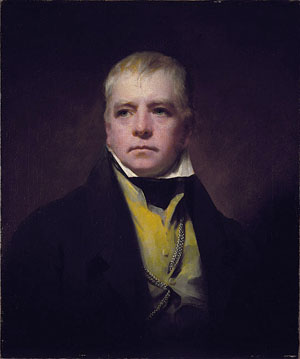The Holy Island
Sir Walter Scott
And now the vessel skirts the strand
Of mountainous Northumberland;
Towns, towers, and halls successive rise,
And catch the nuns' delighted eyes.
Monk-Wearmouth soon behind them lay,
And Tynemouth's priory and bay;
They marked, amid her trees, the hall
Of lofty Seaton-Delaval;
They saw the Blythe and Wansbeck floods
Rush to the sea through sounding woods;
They passed the tower of Widdrington,
Mother of many a valiant son;
At Coquet Isle their beads they tell
To the good saint who owned the cell;
Then did the Alne attention claim,
And Warkworth, proud of Percy's name;
And next they crossed themselves to hear
The whitening breakers sound so near.
Where, boiling through the rocks, they roar
On Dunstanborough's caverned shore;
Thy tower, proud Bamborough, marked they there,
King Ida's castle, huge and square,
From its tall rock look grimly down,
And on the swelling ocean frown;
Then from the coast they bore away,
And reached the Holy Island's bay.
The tide did now its flood-mark gain,
And girdled in the saint's domain;
For, with the flow and ebb, its style
Varies from continent to isle;
Dry-shod, o'er sands, twice every day,
The pilgrims to the shrine find way;
Twice every day, the waves efface
Of staves and sandalled feet the trace.
As to the port the galley flew,
Higher and higher rose to view
The castle with its battled walls,
The ancient monastery's halls,
A solemn, huge, and dark red pile,
Placed on the margin of the isle.
In Saxon strength that abbey frowned,
With massive arches broad and round,
That rose alternate, row and row,
On ponderous columns, short and low,
Built ere the art was known,
By pointed aisle and shafted stalk,
The arcades of an alleyed walk
To emulate in stone.
On the deep walls the heathen Dane
Had poured his impious rage in vain;
And needful Avas such strength to these.
Exposed to the tempestuous seas,
Scourged by the winds' eternal sway,
Open to rovers fierce as they,
Which could twelve hundred years withstand
Winds, waves, and Northern pirates' hand.
Not but that portions of the pile,
Rebuilded in a later style,
Showed where the spoiler's hand had been;
Not but the wasting sea-breeze keen
Had worn the pillar's carving quaint,
And mouldered in his niche the saint,
And rounded, with consuming power,
The pointed angles of each tower;
Yet still entire the abbey stood.
Like veteran, worn, but unsubdued.
The monastery on the Holy Island of Lindisfarne was founded by St Aidan in the 7th century. St Cuthbert was a monk on the island and later became abbot. He was buried in the Abbey.
The island was vulnerable to Viking raids, and suffered their first in 793. In 875 the monks abandoned the abbey, driven off by repeated Viking attacks. They took Cuthbert's bones with them.
